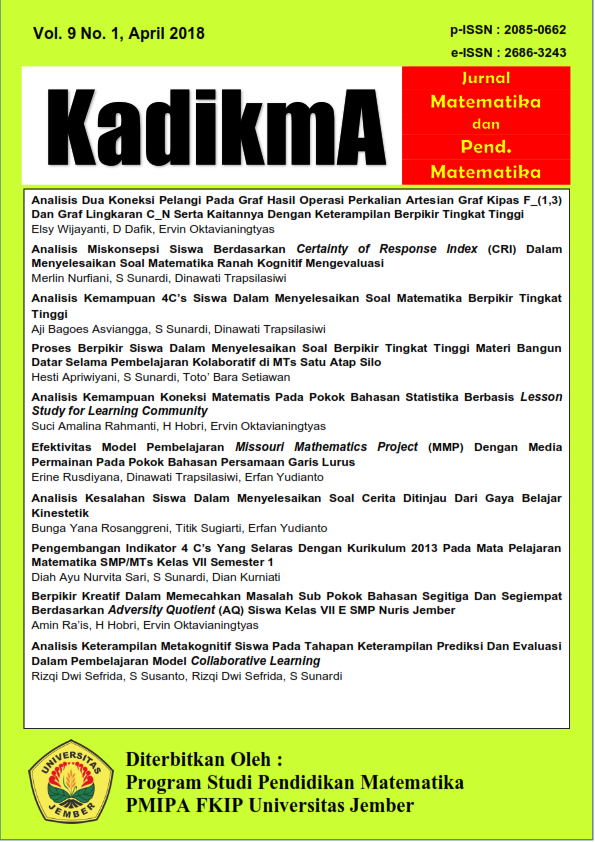ANALISIS KETERAMPILAN METAKOGNITIF SISWA PADA TAHAPAN KETERAMPILAN PREDIKSI DAN EVALUASI DALAM PEMBELAJARAN MODEL COLLABORATIVE LEARNING
Abstract
Metacognitive skills is one of the skills that help students in learning math. One way to strengthen students' metacognitive skills by using collaborative learning. This research aims to describe the students’ metacognitive skills in the stages of prediction and evaluation skills by using collaborative learning about Pythagorean theorem at Islamic’s School One Atap Jember. The subject of this research is all students of class VIII B that consist of 20 students in each class. Then, they were formed in 4 study groups, so each group consisted of 5 students. The results in this study were obtained through the students worksheet at the collaborative learning and interview process by representatives of each group. Based on the results of students worksheet, the stage of prediction skills in exploration and transformation learning stage could be fulfilled by the four groups. While the evaluation skill at the reflection learning stage only be met by two groups, the other groups did not meet it because they have not justify the step or the calculation process that has not been appropriate. Based on the results of interviews from the four representatives of the group it can be seen that the prediction skills only be met by two representative groups, that are students with high and medium skilled.
Keywords: Metacognitive skills, collaborative learning, prediction skills, evaluation skills.


.png)
.gif)





